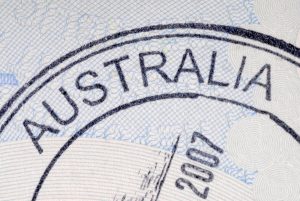Australia has begun having necessary public debates about its post-pandemic recovery. One of the more crucial elements of this recovery is how the country re-establishes its immigration program, which has effectively been paused for the past year and a half. In recent decades Australia’s national strategy has relied on sourcing a significant number of skilled migrants to off-set birthrates that are below the replacement level, drive economic activity, and enhance the country’s overall capabilities. That strategy proved successful.
Due to this, the Australian Chamber of Commerce and Industry has begun pushing for 200,000 skilled migrant visas to be issued annually, a return to the pre-pandemic average. However, advice provided to the new premier of New South Wales, Dominic Perrottet, indicated that Australia will require 2 million new residents over the next five years to meet labor shortages, effectively double the pre-pandemic intake. This would match Canada’s ambitious new target for its own national expansion (one it is already meeting).
In Parag Khanna’s new book, “Move,” the author argues that the post-pandemic world will see a fierce competition for young talent by migrant-accepting countries. Countries that are able to both attract and retain people will find themselves at a distinct advantage. Pre-pandemic Australia could rightly claim to be a lifestyle superpower, providing it with a serious asset for attracting these highly skilled migrants, yet the country’s highly protectionist response to the pandemic may have blunted this image.
While in recent decades Australia has offered migrants opportunities and ways of life that they otherwise may not have had, it has also not made fully accessing these opportunities particularly easy. Australia’s visa system is notoriously complex and expensive, with myriad hurdles to jump, and no clear pathway toward permanent residency. Migrants can spend a decade or more bouncing between an array of insecure short-term visas, limiting their ability to make long-term plans and subsequently limiting their ability to feel welcome and valued in the country. If Australia wishes to compete in a post-pandemic contest for skills it will need a less obstructionist visa system.
Yet there is more to this equation than just Canberra creating the administrative processes to maximize its power and potential. While states may be self-interested entities, they also face conditions that prevent them from acting perfectly in their own self-interest. Immigration can be an emotionally sensitive subject, making the politics around it difficult to navigate. There is a tension between what the country requires and what is politically achievable.
Australia, like other Western liberal democracies, is currently facing a crisis of confidence in its own ideas and values. Admittedly, Australia is not in as degraded a state as other similar countries, but a suspicion of liberalism – and its openness to the world – exists within the country and should not be ignored. This sentiment is born out of a paradox within the nation-state, where some elements within liberal societies believe that the state is undermining the nation.
The political psychologist and behavioral economist Karen Stenner has argued that liberal democracies have reached a stage of complexity that around one-third of their citizens have difficulty adjusting themselves to. These people value consistency, conformity, and homogeneity over difference and change. This disposition can tolerate changing societies under the right conditions, but it is susceptible to arousal and agitation through political demagoguery and media outlets that prey on their insecurities — leading to support for more insular and authoritarian styles of governing.
Following several decades of rapid social change, the COVID-19 pandemic could not have been a worse global-scale event for those who would like to keep this authoritarian disposition dormant. It has exacerbated the sense among some that states are acting against the interests of the public, leading to a further retreating into in-groups. The fear would be that this public sentiment now makes it far too difficult to re-establish Australia’s significant immigration program.
Yet Australia now faces not only economic conditions that require an increased labor force, but also strategic conditions that require an increase in state power. Canberra must confront the dual problem of a powerful and belligerent regional adversary in China alongside a primary security partner in the United States whose domestic instability is making it far less reliable. To negotiate this difficult terrain Australia requires more people to enhance its economic, diplomatic, defense, and cultural capabilities.
The serious question that Canberra must now ask itself is: How does it take the necessary steps to increase its capabilities without disrupting its own internal stability?
Addressing the culture of suspicion and contradictions at the heart of immigration process should be the first place to start. In recent decades Australia has asked migrants to provide the country with labor, knowledge, and taxes, but not civic engagement. Those who perceive that migrants are not “loyal” to the country have been aided in this perception by a visa system that doesn’t give migrants the opportunity to fully invest themselves in the country. There’s the potential to address both problems if handled correctly.
This would also require a change in public narrative, highlighting the courage and resilience of migrants, the honor Australia should feel at being chosen as a destination country, and the prosperity and social enhancement that flows from their contributions to society. If psychological insecurity is the political impediment to Australia’s expanded migration program, then migration as a tool to enhance national security should be emphasized.
The pandemic has offered governments the opportunity to rethink how they approach these key nation-building initiatives. It has also provided an example of what states can do when they focus their minds on a task. This should make it clear to Canberra that such necessary rethinking of immigration’s key role in Australia’s nation-building should not be deemed too difficult to pursue.

































